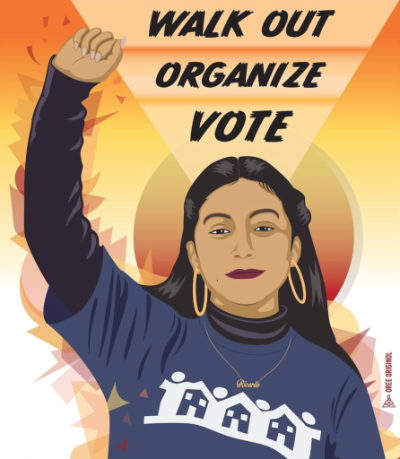
The Youth Organizing Capacity Building Initiative is a three-year initiative funded by the Weingart Foundation, W.M. Keck Foundation, and The California Endowment. YOCBI is designed to strengthen the capacity and effectiveness of 501(c)(3) organizations engaged in youth organizing in communities most impacted by racial, economic and social inequity across 6 Southern California regions (Ventura County, Santa Barbara County, Los Angeles County, Orange County, Riverside County, San Bernardino County). Twenty-six organizations across Southern California (16 based in Los Angeles County), have been awarded three-year unrestricted grants to increase their capacities to train young people in community organizing in support of youth development and social change. PARC designed a cross-site evaluation of YOCBI to explore how grant making can expand the capacity of community-based organizations, deepen their connections and networks with each other to maximize effectiveness of their equity efforts, and discern how philanthropy can best fund and support youth organizing organizations. To that end, the evaluation is designed to:
- yield data needed to strengthen and sustain the work of grantees over time;
- expand grantees’ and funding partners’ knowledge base of youth-organizing efforts; and
- identify ways that philanthropy can adapt and evolve to meet the changing needs of nonprofits working in the youth organizing field.
The Initiative evaluation uses a Community Based Participatory Research (CBPR) approach that is: 1) is integrative, multi-year, multi-site, and mixed-methods in nature; 2) collects diverse baseline and outcome data; and 3) includes in-depth case studies with a sub-sample of six grantees selected to reflect a diverse sample of social justice issue foci, organizational and youth organizing capacity/experience, regions, and constituent race/ethnicity.
Evaluation findings will: 1) provide important data to the grantees to strengthen and sustain their work over time; 2) expand the grantees’ and the funding partners’ knowledge about regional needs and challenges of youth-serving organizations and how they work individually and collectively to address those needs; 3) contribute to the field of youth organizing and social movement research to help identify ways that philanthropy can adapt and evolve to meet the changing needs of nonprofits working in these spaces; and broaden the field’s understanding about how to support the efforts of community-based organizations to develop youth leaders equipped to inform policy change to address the social determinants of health.